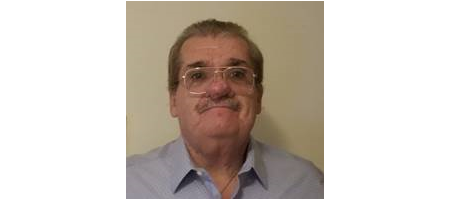Since my wife died just over four years ago, I tried to read as many books as I could about grief. Fortunately, I have read dozens of books in my feeble attempt to understand something that is so much larger than I could have imagined. Hundreds and hundreds of writers have attempted to tackle the world of grief and tried to give meaning to something that encapsulates us, the bereaved, as they try to offer ways to deal with it, confront it, and, with time, learn to accept it.
Recently, I finished reading a great book by Megan Devine. The title of the book is It’s Ok not to be OK. Ms. Devine is a licensed mental health therapist with twenty years of experience in the field and a widow.
Fifteen years ago, she and her husband were vacationing in the Caribbean. She was sunbathing on the beach, and he decided to go for a swim. Unfortunately, he got caught in an undertow and died accidentally. She was stricken with unbearable grief. Her world ended on that fateful day, and what she believed as a therapist about coping with grief would change forever.
She begins her work with some important ideas that I think are vital to those of us who have lost our life partners or spouses.
First understand that grief is not a disease that we need to be cured of.
Secondly, grief is not an illness that, with medication, will one day go away.
Thirdly, grief is not a problem you can fix.
Lastly, grief cannot be broken down and repaired.
Let’s look at each of these statements. Grief is not a disease. It would be so easy if we could define grief as a disease. Scientists and doctors could pinpoint all its aspects and create a pill or medication that could treat it and make it go away. Yes, there are physical components to grief that cause brain fog, fatigue, and confusion, but as she mentions in the second idea on grief, there is no medication that can make it disappear.
Grief is not a problem that can be fixed. Read Herb Knoll’s book and recall how he describes the idea that, as men, we are fixers. We look at the problem, diagnose what is wrong, and remediate or repair it. That cannot be done with grief. It’s a journey that requires us to do work to move forward.
Megan Devine’s last point is that grief cannot be broken down and repaired. It’s not an engine or transmission that needs to be fixed or an appliance we can replace. Grief is a part of life that needs to be validated. She suggests that therapists and doctors recognize that it is okay not to be okay.
Grief is not something we can push away, medicate away, drink away, work away, sleep away, dream away, or try any other way to make it go away.
Grief is a natural part of life. It is something everyone who loves goes through. There are no right or wrong answers and the way to travel the path is with the help of people who are going through the process. The Widowers Support Network Facebook page provides support and comfort to men who grieve. It’s the many authors who share their pearls of wisdom on this Facebook page. It is the wisdom of so many on this Facebook page who are here to provide guidance and lend an ear. It is you and me, my brothers, who carry each other through the darkness into light.
______________________________________________________________________
To refer others to the Widowers Support Network, suggest that they apply at Widowers Support Network – Members Only on Facebook.


Leave a comment